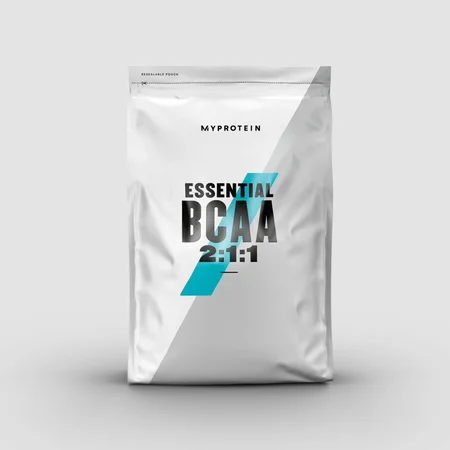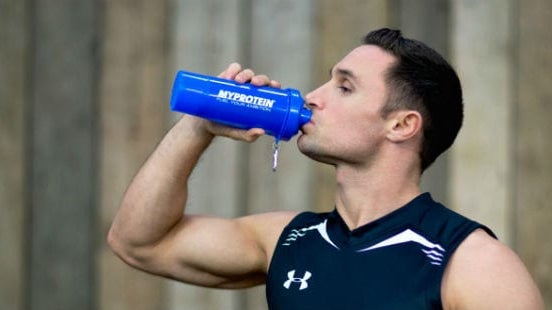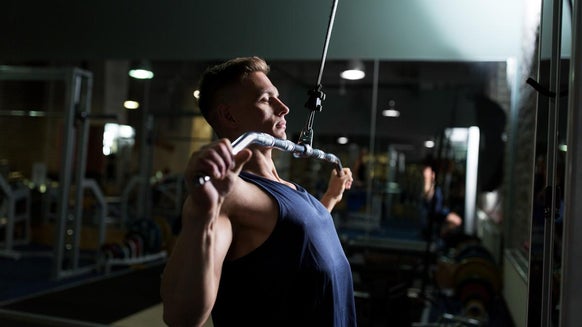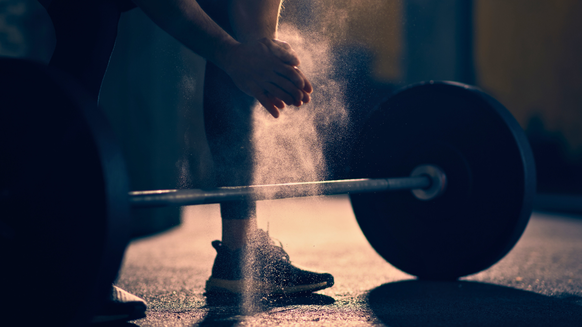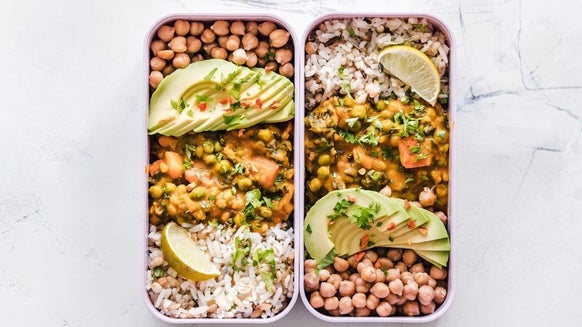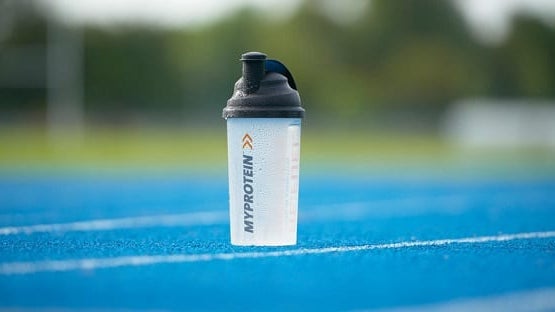
Building muscle isn’t always easy but there’s a number of things you can do with your nutrition to speed up the process. Getting enough protein and calories on board, alongside good quality, consistent training, form the fundamentals of muscle gain. Following our 5 tips below will mean you’re doing everything you can to pack on healthy, lean muscle mass.

1. Eat more and fuel muscle growth with food
To build muscle your body needs energy. If your diet is low in calories and you are in an energy deficit, it becomes much more difficult to build muscle. Based on the current evidence, a small-moderate daily calorie surplus of 250-450kcals is recommended.
2. Eat every 3 hours
In your body there are continuous periods of muscle protein breakdown and muscle protein synthesis. When muscle protein synthesis exceeds muscle protein breakdown, there is a net gain of muscle.
Whilst protein breakdown remains fairly stable, muscle protein synthesis requires a stimulus. Eating a high protein meal will provide this stimulus and increase your rate of muscle protein synthesis.
Regardless of how much protein you eat in a single meal, rates of muscle protein synthesis will naturally start to drop. This is why it is important to eat protein at regular intervals throughout the day with evidence showing that every 3 hours is optimal.
3. Protein can build new muscle
Protein contains amino acids which are the building blocks of muscle. Eating a meal high in protein and amino acids will increase your body’s rate of muscle protein synthesis (MPS). To build muscle, MPS needs to be higher than muscle protein breakdown so it’s important to eat enough protein in order to do this.
Combining adequate protein intake with weight training is the best way to increase muscle mass in the long term.
4. Carbs are great for providing energy and recovery
High intensity exercise such as resistance training use carbohydrates as a fuel source, with evidence showing that weight training can reduce your body’s stored carbohydrates by as much as 40%.
Consuming carbohydrates will also help you to recover so you can train at the same intensity each time you hit the gym and continue to make progress.
5. Protein shakes and amino acids
Not all protein sources are equal. Some contain more essential amino acids than others. This will have an effect on the impact that a specific protein source will have on your body’s muscle protein synthesis rates.
In order to maximize rates of MPS, your body needs to ingest enough leucine, a branched-chain amino acid, which acts a signal for your body to start building muscle.
Whey protein, which is the protein typically used in protein shakes, is high in leucine and other essential amino acids and is considered a high-quality protein source. Additionally, whey protein is digested quickly meaning it will increase muscle protein synthesis at a faster rate.

FAQs About Muscle Growth
How long does it take to build muscle?
The lucky ones will be able to build muscle quite quickly. For others it can take a long period of time with factors such as training experience, training volume and calorie intake all influencing the time it takes.
If you get everything right with your training and diet, expect to gain around 0.5-1kg a month of lean muscle mass. This may seem like a small amount so it is important to give yourself plenty of time and set realistic expectations. If your body mass is going up a lot quicker than this, it’s a sign that you may also be adding fat mass.
How much should I eat to build muscle?
To build muscle without any unwanted fat gain, it is recommended that your diet consists of a small-moderate daily calorie surplus of approximately 250-500kcals. Adding much more than this will likely lead to fat storage as well as muscle gain.

How Much Protein Do You Need to Build Muscle?
On a daily basis, it is recommended that you consume between 1.6g/kg/d – 2g/kg/d with the exact number depending on the rest of your overall calorie intake. For someone who is 80kg this equates to 130g – 160g.
For each meal, it’s recommended you consume 0.3g/kg (24g for an 80kg individual) to maximally stimulate muscle protein synthesis.
Which Myprotein products do you recommend to build muscle?




Take Home Message
Want more from our experts?
READ THESE NEXT:

4 Bodyweight Workouts to Build Muscle | 15 Essential Exercises at Home
No gym equipment needed for this bodyweight workouts - give them your best....

Cardio Exercises That Build Muscle
Cardio doesn’t mean spending an hour on the treadmill......

3 Healthy High-Protein Mass Gainer Shake Recipes
Gainer shakes to fuel your day the right way....

Liam is a certified sport nutritionist with the International Society of Sport Nutrition and is enrolled on the British Dietetics Association’s Sport and Exercise Nutrition register. He has a Bachelor’s of Science in Sport and Exercise Science and is graduate of the ISSN Diploma in Applied Sport and Exercise Nutrition.
Liam is an experienced personal trainer, helping clients reach their health and fitness goals with practical, evidence informed exercise and nutrition advice.
In his spare time Liam has competed in numerous powerlifting competitions and enjoys hill walking, football and expanding his recipe repertoire in the kitchen. Find out more about Liam's experience here.
- Slater GJ, Dieter BP, Marsh DJ, Helms ER, Shaw G, Iraki J. Is an Energy Surplus Required to Maximize Skeletal Muscle Hypertrophy Associated With Resistance Training. Front Nutr. 2019 Aug 20;6:131. doi: 10.3389/fnut.2019.00131. PMID: 31482093; PMCID: PMC6710320.
- Stokes T, Hector AJ, Morton RW, McGlory C, Phillips SM. Recent perspectives regarding the role of dietary protein for the promotion of muscle hypertrophy with resistance exercise training. Nutrients. (2018) 10:E180.
- Areta, J., Burke, L., Ross, M., Camera, D., West, D., Broad, E., Jeacocke, N., Moore, D., Stellingwerff, T., Phillips, S., Hawley, J. and Coffey, V., 2013. Timing and distribution of protein ingestion during prolonged recovery from resistance exercise alters myofibrillar protein synthesis. The Journal of Physiology, 591(9), pp.2319-2331.
- . Koopman R, Manders RJ, Jonkers RA, Hul GB, Kuipers H, van Loon LJ. Intramyocellular lipid and glycogen content are reduced following resistance exercise in untrained healthy males. Eur J Appl Physiol. (2006) 96:525–34.
- . Gorissen, S. and Witard, O., 2017. Characterising the muscle anabolic potential of dairy, meat and plant-based protein sources in older adults. Proceedings of the Nutrition Society, 77(1), pp.20-31.
- Wilkinson DJ, Hossain T, Hill DS, Phillips BE, Crossland H, Williams J,… Atherton PJ. (2013). Effects of leucine and its metabolite B-hydroxy-β-methylbutyrate on human skeletal muscle protein metabolism. J Physiol 2013. 1;591(11):2911-23
- Boirie Y, Dangin M, Gachon P, Vasson MP, Maubois JL, Beaufre`re B (1997). Slow and fast dietary proteins differently modulate postprandial protein accretion. Proc Natl Acad SciUSA. 94:14930–14935, 1997.
- Buford, T., Kreider, R., Stout, J., Greenwood, M., Campbell, B., Spano, M., Ziegenfuss, T., Lopez, H., Landis, J. and Antonio, J., 2007. International Society of Sports Nutrition position stand: creatine supplementation and exercise. Journal of the International Society of Sports Nutrition, 4(1), p.6.
- Paul LG. (2009). The Rationale for Consuming Protein Blends in Sports Nutrition. The Journal of the American College of Nutrition. 2013. 28:sup4 464S-472S.
- Churchward-Venne TA1, Breen L, Di Donato DM, Hector AJ, Mitchell CJ, Moore DR, Stellingwerff T, Phillips SM. (2013) Leucine supplementation of a low-protein mixed macronutrient beverage enhances myofibrillar protein synthesis in young men: a double blind, randomized trial. Am J Clin Nutr. 2014 99(2):276-86
